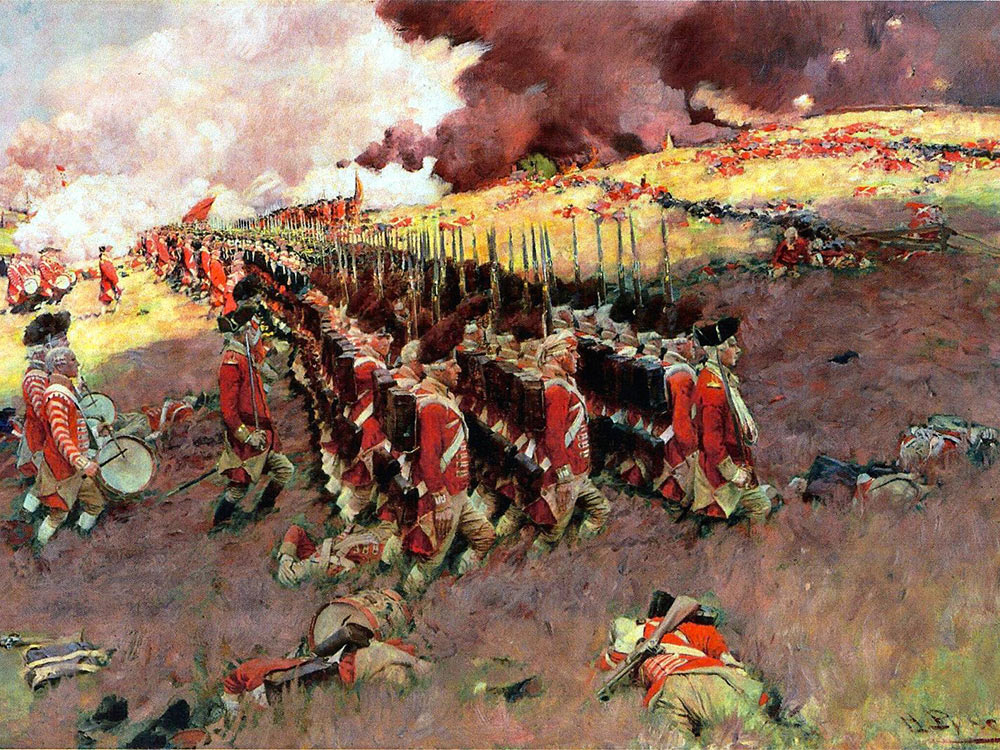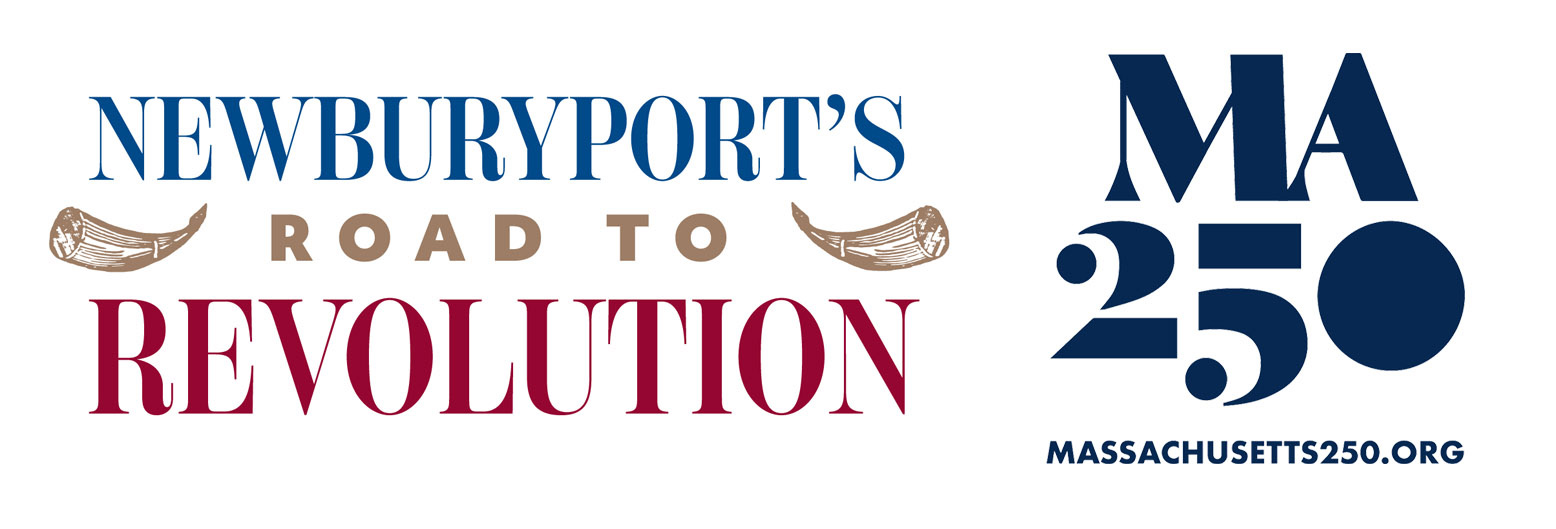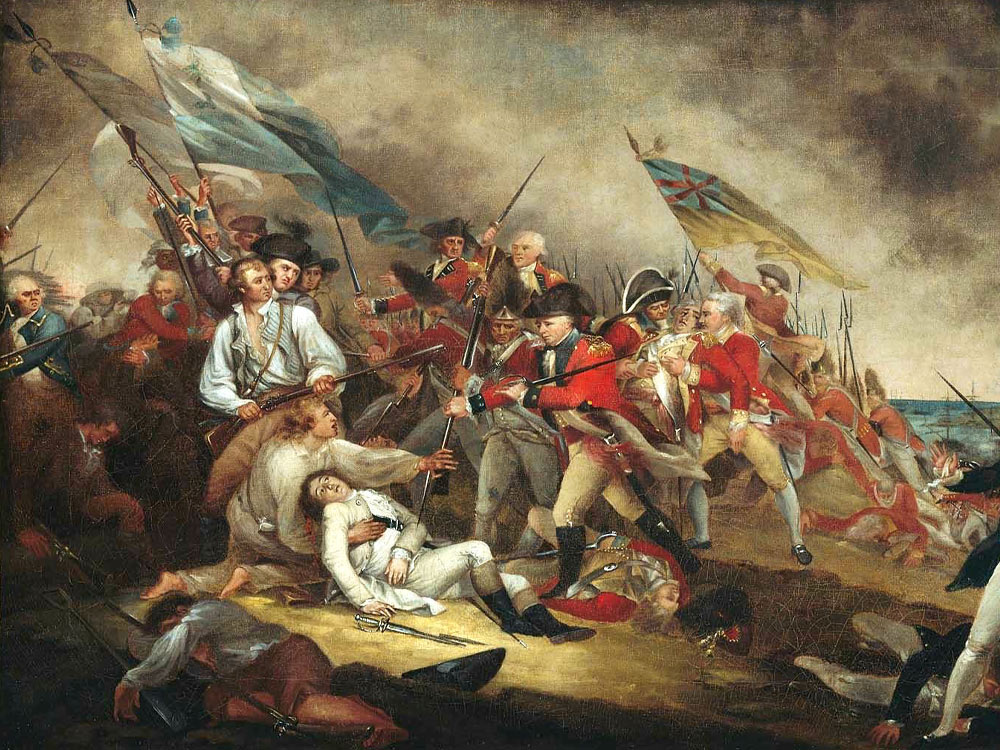The American Revolutionary War (1775–1783) claimed tens of thousands of lives, not only in battle but through disease, captivity, and displacement. The war’s toll affected soldiers, civilians, and entire communities across the thirteen colonies and beyond.
American Forces
The Continental Army and colonial militias suffered approximately 25,000 deaths. Of these, about 6,800 were killed in combat and estimated 6,100 were wounded. Nearly 18,000 Americans were taken prisoner, with as many as 12,000 perishing in brutal captivity from diseases such as typhus and dysentery, especially aboard overcrowded British prison ships in New York Harbor.
British Forces
British and Loyalist forces also faced substantial losses. Of the estimated 24,000 total deaths, about 1,200 were killed in combat. Disease, particularly Hessian troops, claimed 18,000 or more lives. Thousands of British and allied soldiers were captured, including 5,700 at Saratoga (1777) and over 7,000 at Yorktown (1781).

Native American Nations
Native American nations, drawn into the war on both sides, suffered devastating losses through battle, reprisal raids, and epidemic disease.
Massachusetts: At the Heart of the Revolution
With a population of about 250,000, it contributed more soldiers to the Patriot cause than any other colony—over 67,000 enlistments across the war’s duration.
Massachusetts Casualties
An estimated 6,000 Massachusetts soldiers died, including 1,500–2,000 in battle and 4,500–5,000 from disease. Thousands more were wounded. Massachusetts troops were among those captured at major defeats like the Battle of Long Island and the siege of Fort Washington, with many dying in captivity.
Major Battles in Massachusetts
The war’s first shots were fired at the Battles of Lexington and Concord (April 1775), where 49 Americans and 73 British soldiers died. Just two months later, the Battle of Bunker Hill saw over 1,000 British casualties and 450 American losses. These early battles set the tone for a long, costly conflict.
The Scourge of Smallpox
Simultaneous to the war, North America was devastated between 1775–1783 with a smallpox epidemic. Estimates of 130,000 deaths are shocking. Massachusetts and Newburyport were not spared the ravages of this plague with numerous reports from the time advising caution and protection.
In 1777, General George Washington ordered the inoculation of all Continental troops, a critical decision that saved thousands of lives. Thomas Jefferson, John Adams, and Benjamin Franklin led attempts to stop the spread of the disease. The smallpox inoculation program paved the way for the global public health system that is responsible for the control and eradication of many deadly diseases today.

Special Thanks to:


Plan Your Visit
Plan Your Visit
- Museum Hours
Sunday: 12 pm - 5 pm
Closed Monday
- Tickets
$8 admission for adults
Free for NBPT residents, kids under 12, and museum members
Cost of admission includes access to the Discovery Center.
- Parking
City parking is available adjacent to the museum. View parking lot directions.

